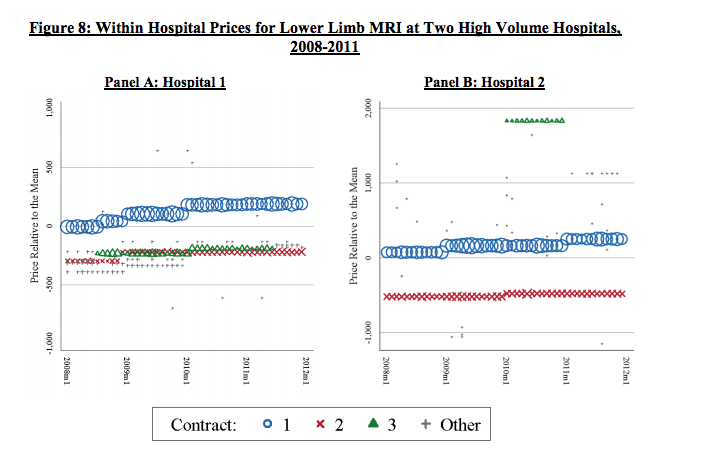Cancer Policy News Roundup: Proposed Cuts to CHIP, Association Health Plans in Farm Bill, Prescribing Exercise for Cancer Patients, and More
A new weekly roundup of policy news affecting the cancer community.
In order to bring you the latest cancer-related health care policy and news, we at NCCS are combining our ACA Updates and What Caught Our Eye (WCOE) content into a weekly email and blog post. We aim to make this a concise, one-stop summary of what you need to know as we continue working together to make cancer care better for everyone.
Your feedback is always welcome to make our emails more useful to you. Please send comments to feedback@canceradvocacy.org.
Subscribe to our email list and receive these updates in your email box each week »
Thank you for your support of NCCS.
HEALTH CARE HIGHLIGHTS
Proposed CHIP Cuts
This week the Trump administration proposed a $15.4 billion package of spending cuts across 10 federal departments, with half of the cuts expected to come from CHIP (Children’s Health Insurance Program). As the Georgetown Center for Children and Families reports, following the bipartisan agreement earlier this year to extend CHIP funding for ten years, it was surprising to hear that the administration wants to cut CHIP funds. Two billion dollars in cuts would come from the Child Enrollment Contingency Fund. The Contingency Fund is a “rainy day” fund put in place to help prevent states from running out of money. Contingency Fund dollars are made available to states if they experience an unexpected surge in enrollment, perhaps due to natural disasters or an economic downturn, ensuring that eligible children can continue to get covered.
Association Health Plans Hidden in Farm Bill
There are more health care policies emerging from an unlikely place: the farm bill. Kaiser Family Foundation reports that in the House version of the massive bill—amid crop subsidies and food assistance programs—is a provision that would provide less comprehensive health insurance through associations than plans offered through the Affordable Care Act. It calls for $65 million in loans and grants administered by the Department of Agriculture to help organizations establish agricultural-related “association” type health plans. Under that proposal, association plans would not have to offer coverage across 10 broad “essential” categories of care, including hospitalization, prescription drugs and emergency care. They could also spend less premium revenue on medical care.
Premium Increases
Insurance companies in Virginia and Maryland announced significant health care premium hikes and cited the administration’s actions as reasons for the rising rates, including repeal of the individual mandate. They also said they expect more increases in the fall. Read more on Bloomberg.com »
Drug Prices
Lastly, this afternoon, the White House announced a plan regarding the high cost of prescription drugs in the U.S. Preliminary analyses suggest that the policy proposals will have a relatively modest impact, but NCCS will continue to review the plan and follow these issues as they develop.
CHART OF THE WEEK

This is a chart shared by Sarah Kliff at Vox.com from a study that looked at the variation of MRI costs within a hospital based on contracts with different payers. Very interesting insights about the contributing factors of the high price of care in the United States. Read more about the study here »
IMPORTANT READS
‘World-first’ call for exercise to be prescribed to all Australian cancer patients
Via ABC News (Australia)
An interesting article that outlines how 25 health organizations in Australia are recommending that exercise be prescribed to all cancer patients. “’We’re at a point where the level of evidence is really indisputable and withholding exercise from patients is probably harmful,’ said Associate Professor Prue Cormie, who is chair of the COSA report group and lead author of the statement.”
What’s on the Trump administration’s $15B cost-cutting list
Via Politico
As mentioned above, the Trump administration sent a $15.4 billion dollar package of suggested cuts in federal spending to Congress. What caught NCCS’ eye and raised concern is where some of these cuts would occur. Namely, $6.96 billion cut from the Children’s Health Insurance Program, which helps provide health insurance to low income families and children, helping to cover cancer treatments for those affected. Second, $800 million from the Center for Medicare and Medicaid Innovation (CMMI), which is developing new models to reduce costs and improve care, including for those facing cancer. As noted, the chances of this passing the Senate are slim, but only requires a simple majority.
For mothers with advanced cancer, parenting concerns affect emotional well-being
Via UNC Lineberger News
This headline will come as no surprise to many who have a cancer experience. But as patient-centeredness continues to gain momentum in both cancer care and research, we’re beginning to see more studies like this one. The physical implications of cancer are well documented, and now we are beginning to learn more about the psychological trauma cancer causes as well. One item to highlight is that the study authors “found that parenting concerns were significantly associated with lower quality of life—almost as much as declines in day-to-day physical functioning.” Hopefully, this will eventually lead to more support for parents facing these situations.



